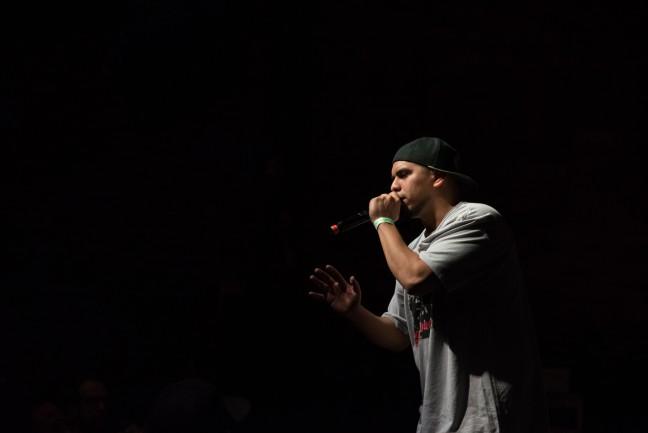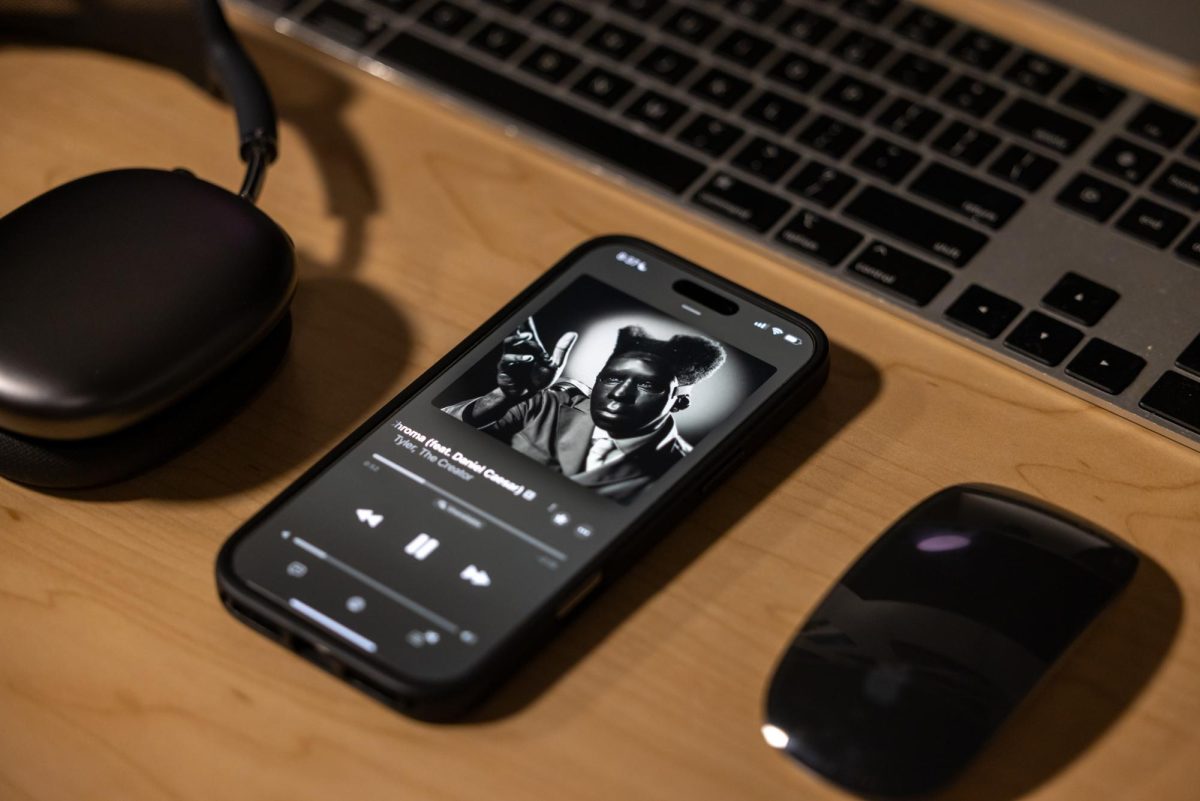Immortal Technique has never shied away from the big issues. The MC from Harlem has confronted issues regarding class struggle, religion, government and institutional racism.
So Immortal Technique focused most of his Barrymore set Monday night on the death of 19-year-old Tony Robinson, who died in an officer-involved shooting last weekend. Immortal Technique created an emotionally intense, politically-charged atmosphere inside the auditorium, which felt particularly searing for the community recently touched by tragedy.
Immortal Technique opened the show with incredibly strong political messages that touched the crowd and created a massive hole for Talib Kweli to fill in the second half of the night.
“Only slaves are afraid to ask questions,” Technique’s words echoed through the Barrymore Monday night, only four days after the shooting by a Madison police officer. He encouraged everyone to use the power of their voices. You should speak up, even if certain people come after you for the knowledge you spread and the ignorance you preach against, he said.
Because of Immortal Technique’s prolific career as an activist, it was no surprise that he participated in the march Monday, met with members of Tony’s family and ultimately applied Tony’s story to the bigger picture of race in the United States.
Not only did Immortal Technique and Kweli discuss institutional racism throughout the show, they also touched on subjects encompassing environmental degradation, same-sex marriage, abortion, conflicts in the Middle East and what Alicia Keys would probably label as “a woman’s worth.”
Technique said our society needs to acknowledge that the way we currently live will never allow us to create and maintain “a sustainable system,” referencing our abuse of natural resources across the world. Later he talked about certain people coming up to him after shows, making statements like, “I don’t believe in abortion,” to which his response is, “Well I have a simple solution to that: don’t have an abortion!”
Finally, after they performed what is probably their most famous song, “Dance with the Devil,” they brought up issues concerning how men treat the women in their lives. The song is about a young man with no father and a drug-addicted mother, who was so infatuated with the illusion of wealth and power that he severely beat and raped a woman to impress real men on the block, only to find out that it was his own mother and committed suicide.
Technique clarified that the most important thing is not to “fight the battles you know you can win,” but rather the ones that “need fighting.” He encouraged men to step up in the face of injustice, and he applauded women for their bravery and strength.
Technique also gave a brief description of hip-hop. Some people are unaware that hip-hop is not about rappers, and that instead, it is a culture, he said. It’s poetry with a beat, dancing on the street, graffiti on the concrete.
For many, hip-hop is spitting about money and hoes, he said, but with a quick lesson, he informed everyone that it’s about the culture, which is retained inside of you regardless of your possessions.
“When someone tries to tell you or anyone else about your culture, you can stand up and say, ‘No! That’s not my culture. I know who I am,’” he said.
Immortal Technique solicited tears from the audience, so when Talib Kweli came on, he had tremendously large shoes to fill. Like Immortal Technique, Talib Kweli’s sophomore album Train of Thought was deeply emotional and politically-charged.
Most of the songs he performed came from the Gravitas album. Backdrop of videos fitted to each song ran throughout his set to add to the experience. But Kweli was somewhat dull.
The show defied expectations. Immortal Technique succeeded from his soapbox, but Kweli flopped as a rapper.














